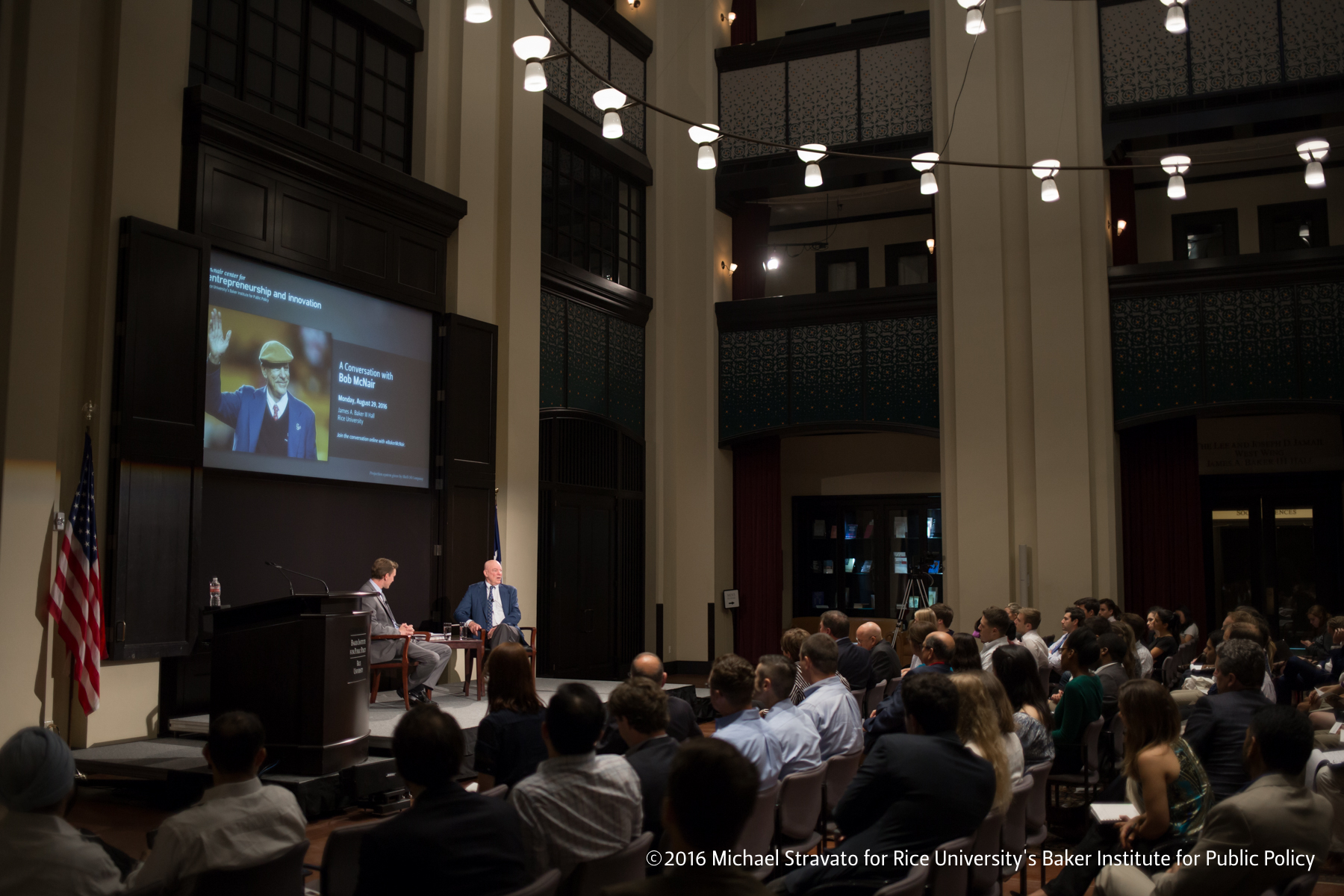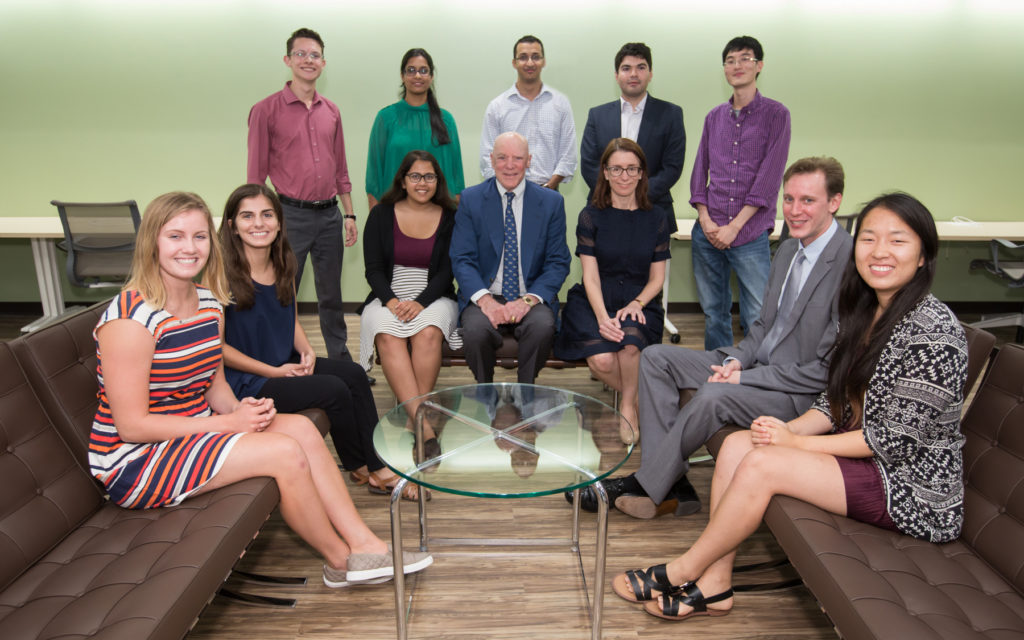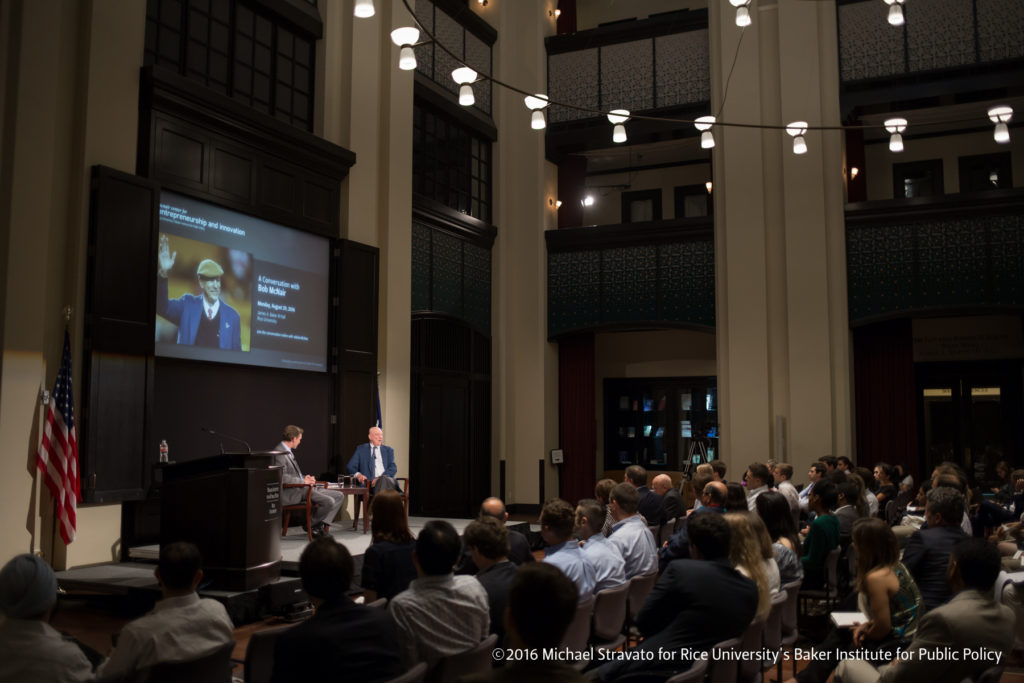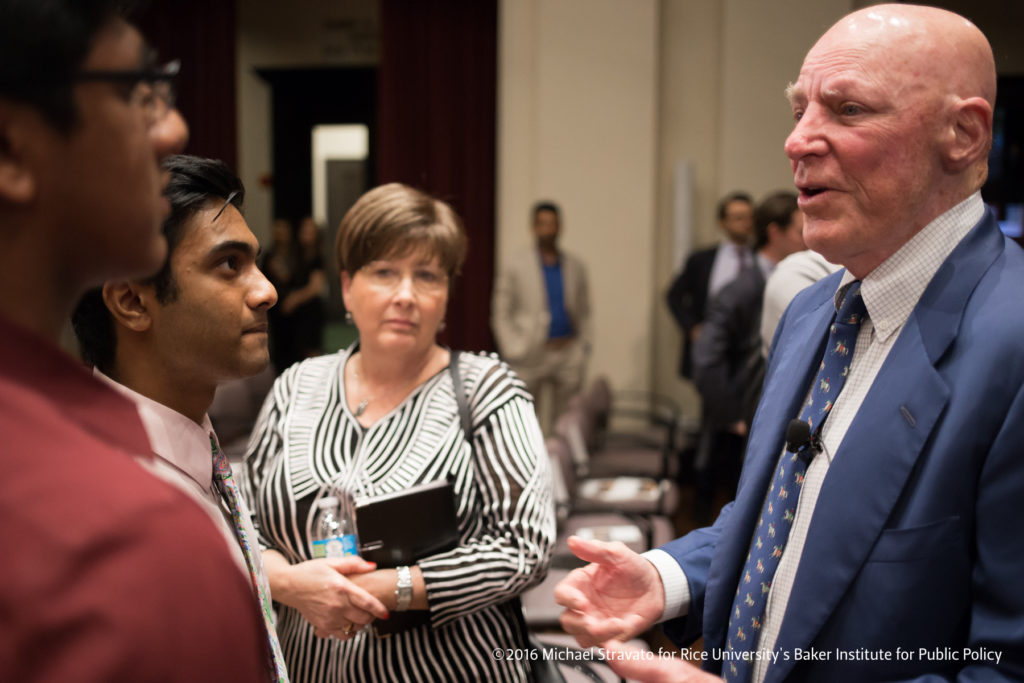This month the McNair Center is spotlighting Rice entrepreneurs to celebrate National Entrepreneurship Month. To kick off our series, we sat down with Andrew Maust, operations manager for East-West Tea.
East-West Tea
East-West Tea began in the spring of 2016 as a project in Scott Davis’s undergraduate marketing class. Dr. Davis, a post-doctoral fellow at the Jones Graduate School of Business, had students develop business strategies catering to underserved markets on campus. East-West Tea founder Drew Sutherland observed that students frequently went off campus to get boba tea and developed a plan to sell the beverage on campus. At the end of the semester, Sutherland and team members Tommy Bennett, David Cooper, Glenn Baginski and Leo Meiste implemented their plan. East-West launched retail operations on October 12.
Impact on the Rice Community
 Andrew Maust joined the team last spring after going to several tea tastings. Since then, he’s climbed the ladder from kitchen worker to operations manager.
Andrew Maust joined the team last spring after going to several tea tastings. Since then, he’s climbed the ladder from kitchen worker to operations manager.
Maust describes the relationship East-West formed with Rice as symbiotic. “One of [East-West’s] core foundations is serving the Rice community. While what we do isn’t necessarily the easiest logistically, or makes us the most money on profit margins, we think it’s really important to serve the students and help them out in our endeavors.”
Maintaining a healthy relationship with Rice is a balancing act. Rice Housing and Dining provides East-West with shared kitchen space in Sammy’s. Without their own kitchen, East-West must “maintain operations but also not encroach on other people’s space.”
Maust says another challenge is running a small business and keeping up with schoolwork. He works 15-20 hours per week in the kitchen, which is “more hours than [he] takes in coursework”.
Advice to Rice Small Businesses
Maust also gave some advise to students who want to start their own business: “It has to be a labor of love. Your first goal shouldn’t be ‘Ooh, what can I do to make money?’ Because in order to build something that lasts and is high quality, it has to be something that you put in a lot of time and effort for. Money is great, but first and foremost you have to have that drive, that passion and put forth a great product.”
This resonates with advice Bob McNair gave students at an event at the Baker Institute on August 29th: Strive to create value and success will follow.





